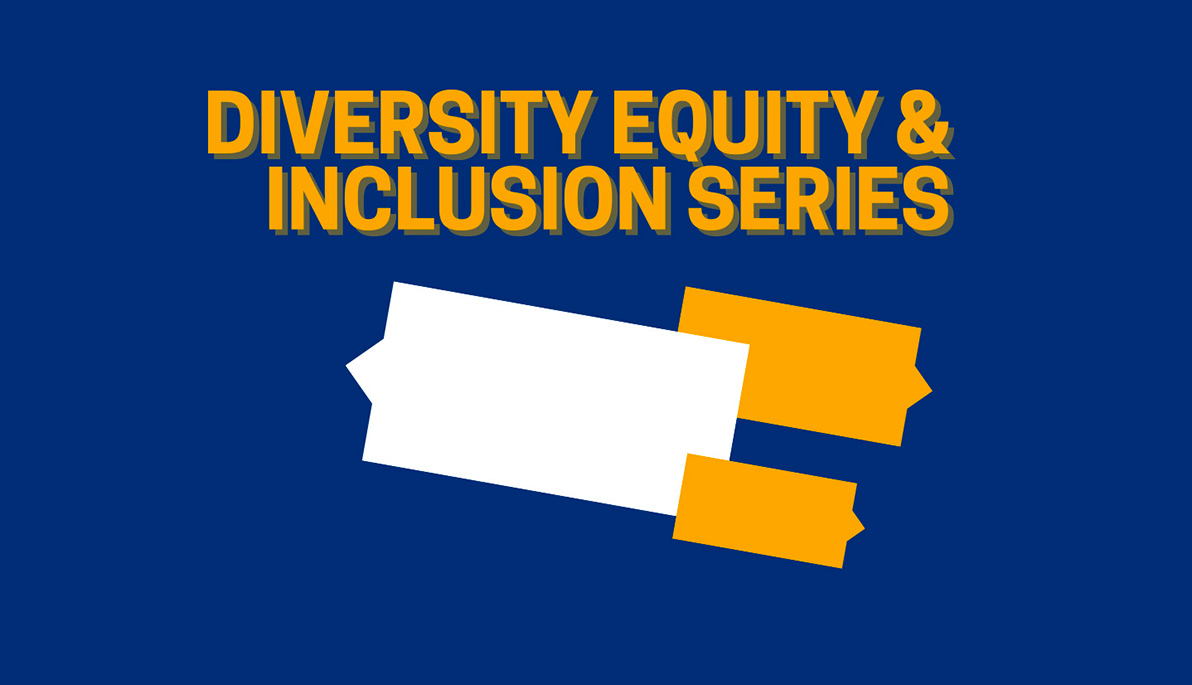News
Wrapped: Fall Conversations on Diversity and Inclusion
January 6, 2021
With a global pandemic, continued reminders of social injustice, and a tumultuous election season, 2020 was a year unlike any other. Yet, despite current events, New York Tech students maintained a sense of community and togetherness.
Helping to foster this camaraderie were two fall semester event series organized by Student Life and the Diversity, Equity, and Inclusion task force: The Open Dialogue Series Fall 2020, and Diversity, Equity, and Inclusion (DEI) Series Fall 2020. Under the umbrella of the New York Tech Votes initiative, events aimed to create a civically engaged campus community and provided open and safe forums for students to discuss critical social topics.
Throughout the Open Dialogue series, students spoke honestly about topics such as identity, colorism and racism, cultural assimilation, and the societal impacts of these ideologies.
Likewise, the DEI series tackled similar topics, but featured keynote speakers who shared first-hand experiences of overcoming the challenges of being a first-generation student, racial inequality, and other themes. Recent events in the DEI series include “Words That Hurt: Building Our Community,” held December 1, and “Pitching Your Story as a First-Generation Student,” held December 3. During “Words That Hurt: Building Our Community,” speaker Cassidy Arrington, a Yale graduate and poet, shared four poems that recounted, with raw honesty, her experiences as a microaggression recipient. Following her poems “Microaggressions,” “This Is My Voice!,” “Black Snowman,” and “When We Fall,” the floor opened for a conversation moderated by students Michael Gao, Daysi Fuentes, Riddhi Modi, and McKayla Foote. Participants were eager to contribute their personal experiences, building a sense of trust and intimacy within the group.
“Pitching Your Story as a First-Generation Student” offered a workshop for first-generation students to learn how to market their unique experiences for future graduate school and job opportunities. Speaker Carlos Osuna, a first-generation graduate and doctoral candidate from Columbia University, mapped out his storytelling methodology using four key questions:
- Who am I? Introduce yourself, your degree, personal fun facts, and reference something that makes you stand out.
- What’s my background? Summarize what you do, talk about your social identity.
- What are my strengths? Highlight your successes, both personal and professional.
- Why am I here? Explain what you want, describe your call to action.
Other events in the fall 2020 DEI Series included:
- “Intersectionality: Embracing and Leading with Your Identity,” held September 29, focused on how intersectionality provides a framework for diversifying knowledge across academic, personal, and professional spaces
- “#InternationalStudentProblems—The Politics, Culture, and Struggles,” held October 22, confronted the unique problems that international students face and offered tips for finding work, as well as adapting to a new language and culture, barriers, time zones, and coping with issues in the classroom.
- “Speaking Up, Activism, and Organizing in Different Spaces,” held November 17, aimed to educate and empower students to be advocates for themselves and the topics they are passionate about.
- “I’m First! Sharing First-Generation Experiences,” held December 3, created an environment in which students shared their personal experiences with one another, relating to hardships and successes.
Reflecting on the success of the events, Kinsely McNulty, program coordinator for student life and student engagement, noted that the DEI series provided a platform for New York Tech’s students to become informed and civically engaged leaders of tomorrow.
“One of the most significant aspects of the DEI Series—in conjunction with the Open Dialogue Series—is that it serves as a space for education and deeper engagement issues on diversity, equity, and inclusion that aims to center the student experience here at New York Tech,” said McNulty. “Our #InternationalStudentProblems event was geared towards supporting international students in light of the uncertainty many faced throughout the summer, with fluctuating travel and student visa policies. Meanwhile, the Speaking Up, Activism, and Organizing event aimed to support students we saw wanting to be more involved with activism following the murder of several black individuals throughout the country this past summer. We made sure student leaders were at the forefront of conversations.”
Students either moderated or served as panelists and their involvement helped to set the tone for healthy dialogue, as well as recognize the importance of student agency and how students can be changemakers in their communities. “We’ve been listening and want to do what we can to help them thrive both inside and outside New York Tech,” said McNulty.
Samantha Mon, assistant director of career services, echoes McNulty’s sentiment and is proud of the teamwork that helped to foster an environment that promoted collaboration not only among students but also staff members of New York Tech’s diverse community.
“One of the greatest successes of the DEI Series was the organic collaboration across campus departments,” she said. “Although spearheaded by Student Engagement and Career Services, we joined forces with other departments to integrate and advertise events in these series through other campus-wide programs, such as the New York Tech Votes initiative, Virtual Homecoming, and First-Generation Student initiative. This became a ‘win-win’ for all departments involved, as we were able to increase our scalability and share human power to meet common goals.”
Stay tuned for more information regarding the Open Dialogue Series and DEI Series in the spring semester.





